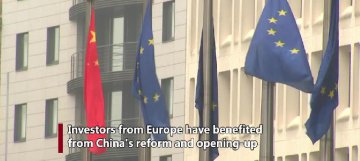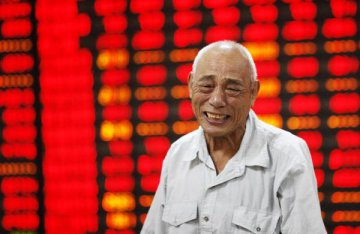
BEIJING, Dec. 25 (Xinhua) -- Despite intertwined structural and cyclical problems facing the Chinese economy, policymakers have pushed ahead with capital market reforms in 2019 that analysts say will be of far-reaching significance to the country's healthy growth in the long term.
From diversifying financing channels for needy areas to opening up wider to foreign investors, the reform moves China has taken have helped facilitate economic upgrading and defuse financial risks.
At the Central Economic Work Conference concluded earlier this month, China's top leaders pledged to quicken reforms of the financial system and continue to improve the underlying framework of the capital market.
The following are some of the key reforms in the capital market in 2019.
STAR MARKET LAUNCH
The sci-tech innovation board (STAR market), designed to focus on companies in the high-tech and strategic emerging sectors, started trading in July. It is seen as a key move to leverage capital to transform the Chinese economy into an innovative one and explore ways to make institutional improvements in the capital market.
Unlike other domestic boards, it cuts red tape for listing applications, allows more market-based pricing, prioritizes information disclosure and tightens delisting rules by piloting a registration-based IPO system, a popular practice in many developed markets.
Trading rules are also different, with no price change limits in the first five trading days. In the following trading days, the board allows stocks to rise or fall by a maximum of 20 percent, higher than the 10-percent limit for most stocks on other boards.
"With the successful pilot of the registration-based system, conditions are ripe for further expanding the rules," said Li Xunlei, chief economist of Zhongtai Securities.
LPR REVAMP
To better reflect market changes, China's central bank in August revamped the LPR (loan prime rate) mechanism in its latest move to guide borrowing costs lower to support the real economy.
Under the revamped mechanism, the monthly-released rates are based on rates of the central bank's open market operations, especially the medium-term lending facility rates. Banks are required to set rates for new loans using the new LPRs as the benchmark.
Reforming and improving the LPR mechanism will boost the independent pricing capabilities and comprehensive competitiveness of financial institutions and create greater synergy between the financial sector and the real economy.
MARKET OPENING UP
To facilitate foreign investment in the interbank bond market, China scrapped investment quota limits for Qualified Foreign Institutional Investors (QFII) and Renminbi Qualified Foreign Institutional Investors (RQFII), and allowed the non-transacting transfer of bonds under the same overseas entity QFII/RQFII and direct entry channels, as well as direct transfer between capital accounts.
For the stock market, overseas investors are encouraged to invest in the STAR market. The Shanghai-London Stock Connect program opened for trading in June as another channel for foreign capital inflow.
Foreign ownership limits on futures companies, fund management firms and brokerages will also be lifted next year.
Market access is eased for foreign firms by shortening the negative list of sectors and businesses that are off-limits for foreign investors from 48 items to 40.
Ownership restrictions for foreign investment in performance brokerage institutions as well as in the exploration and development of petroleum and natural gas were canceled in the new list.
CLEAR ROADMAP
The China Securities Regulatory Commission in September listed 12 priorities for deepening the reform of the capital market, charting a clear roadmap for the sector.
The key tasks include giving full play to the role of the STAR market as an experimental field, encouraging listed companies to enhance their quality, further promoting the reform of the Nasdaq-style board ChiNext, and pushing faster improvement in China's National Equities Exchange and Quotations, or the "new third board."
In a bid to accelerate the high-level opening up of the capital market, China will implement the announced opening-up measures and safeguard financial security in an open environment, the regulator said.
"With the implementation of the reform measures, China's capital market will see fundamental improvement to better play its role in facilitating economic transformation and high-quality development," said Han Qian, professor of the School of Economics at Xiamen University.





















Latest comments